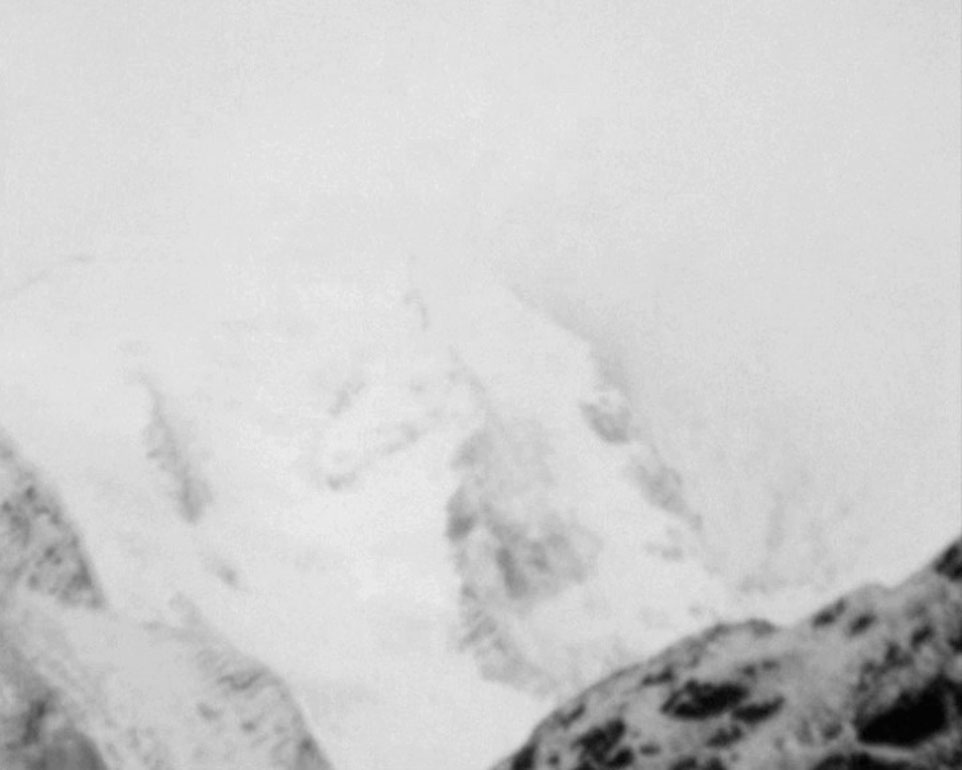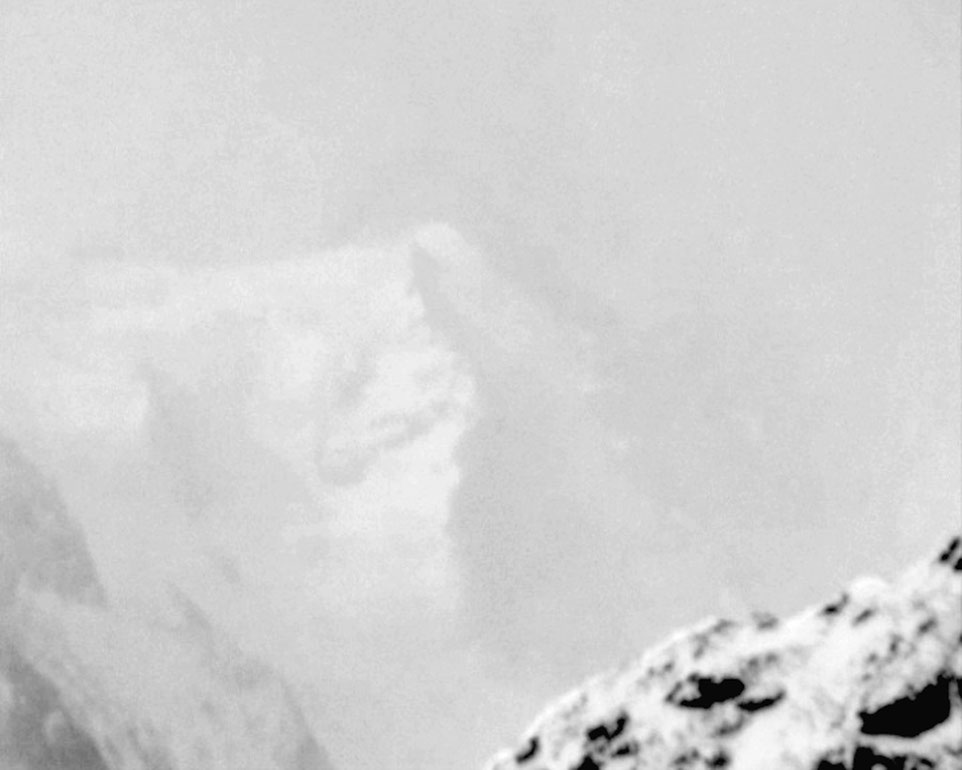bellevue
Snow, fog, cloudsand in the midst of it all, a barely perceptible massif. Or, better yet, a white noise from which contours gradually emerge and just as steadily dissolve back into: As though ghost lights in the digital image-fog that dominates the expanse of this composition. A mountain peak, only vaguely discernible for the longest time, that halfway disappears again the moment it appears.
The starting material for Michaela Schwentners bellevue are webcam recordings from Großglockner that she collected for months and condensed into a nine-minute time image. Schwentners method benefits from the rigid takes, mainly because within them, the interplay of appearing and eluding, of revealing and concealing, can develop the greatest possible effect. Thus, the figure of the mountain uncovers and covers itself in a constant, modulating movement: ridges and slopes peel from the whiteness of the surroundings, to then immediately vanish again within it. Accompanied by a subtle ambient-like rustle, which Schwentner gathered from the direct transformation of the image into sound data, the vision continually clears up and becomes disarranged. As though the mountain, seen and photographed millions of times, does not want to disclose its identity so simply; yes, as though the apparently banal weather panorama recordings harbor a key of sorts to the disappearance of the supposedly most unchangeable natural things.
The beautiful view is fundamentally blurred as a result of bellevue. Not by things incidentally blocking it, such as snow, fog, or clouds, but by a basic instability in the process of (electronic) seeing itself. The more persistently it pursues the phenomena, the more they keep themselves covered from time to time. (Christian Höller)
Translation: Lisa Rosenblatt
bellevue
2008
Austria
9 min


